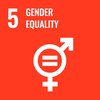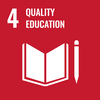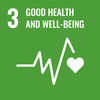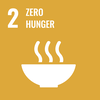The Most Important in Brief
Action for Rural Women's Empowerment(ARUWE) is a non-profit, non-governmental organization working with marginalized groups of people especially rural women, girls and children. ARUWE is gender focused organization that strengthen women's leadership so that collectively they can break the chains of poverty, patriarchy, class and sexual repression. we do this through advocating for women's economic justice, sexual and reproductive health and rights, promoting education and lifelong learning, enabling communities to adapt to climate change and challenging the negative impact of rigid and oppressive gender stereotypes. Our thematic areas are; (i) Women Economic Strengthening, (ii) Education and Lifelong Learning, (iii) Sustainable Health Communities and (iv) Climate resilience and Justice. Our Vision is: A world in which women and girls realize their full potential. Our mission is; to empower women and girls to initiate and manage their socio-economic development processes through strengthening community participation, advocacy and service delivery.
-
Goals
Goal: To contribute to the reduction of the gender gap. Purpose: To empower women and girls to eliminate any practices inhibiting their socio-economic development.
-
Principles
Our core values include; (a) Community Participation: community participation and engagement enriches our work. we value community contribution and involve them at all different stages of our program. (b) Transparency and accountability: We take personal responsibility for achieving our objectives. we do what we say we shall do. we do what is right, all the time and are accountable to self, our team, partners and other stakeholders. (c) Result oriented: We aim to achieve the best results for our beneficiaries and apply the most effective strategies to reach our goals (d) Teamwork: We are one team and value working together to achieve our goals and objectives. we respect each other regardless of position, status and other differences. (e) Servant leadership: We are dedicated to serving the most vulnerable with humility, we go beyond the call of service to meet the needs of those who need them. Our theory of change
-
Measures
Thematic area 1: Women Economic Strengthening Thematic/strategic objectives (i) To enhance women's skills and access to resources to compete in markets, as well as fair and equal access to economic institutions Key interventions: 1. Training in business skills, enterprise selection, planning and management and other skills for women to start enterprises that enable them to advance economically 2. Support women's access to financial services through VSLAs, linkages to ARUWE's community fund and, other business development service providers 3. Strengthening beyond production knowledge and service such as post-harvest handling practices, value addition and access to markets and collective marketing for women Measures/key targets: -5000 women acquire knowledge in enterprise development and business skills by 2026 -60% of target women double their incomes as a result of participating in the program -60% increase in number of women with access to resources including credit Objective2: To increase women's capacity in leadership and decision making over productive resources Key Interventions: 1. Enhance capacity of women to engage in advocacy activities that foster women's financial inclusions and control of resources(eg land) and profits 2. Enhance capacity of women to take up leadership positions at local, sub national and national levels and participate in decisions that contributes to the establishment of favorable policies for women and girls to thrive. 3. Undertake community awareness and campaigns on land and land tenure systems, and change in social norms that present barriers to women's agency Measures: - Increased number of women participating in decision making at household level with regards to expenditure, investment and household management -Increased number of women participating in community groups, local leadership positions and decision making processes - At least 5 women-led advocacy and campaign activities at local and national level Thematic area2: Education and Lifelong Learning Objective 1: Improved access to education for girls in schools by 2026. Key interventions: 1.Trainings girls in schools and formation o girl clubs for peer to peer learning and support 2.Construction of training centers and associated facilities to support girls hygiene 3. Training of user committees to ensure continued functioning of installed facilities Measures: -5000 girls in schools acquire knowledge on hygiene, menstrual management and rights -Increased number of in-school children especially girls accessing gender sensitive and disability inclusive WASH facilities and classrooms -At least 100 girls support clubs formed in school -Increased retention of girls in target schools due to provision of safe spaces and facilities. Objective2: To increase literacy levels, vocational and life skills for out of school girls, women and youth by 2026 Key interventions 1.Conduct skills needs assessment and identification and selection of project beneficiaries 2. Conduct market-surveys to ascertain profitable skills ventures 3. Skills training(entrepreneurship, life skills, financial literacy and vocational skills etc.) 4. Provision of equipment, seed capital and start-up kits for trained women and girls 5. Mentorship and Linkage to credit and bigger markets Measures: -5000 girls, women and youth with knowledge and skills in vocational, life skills, business etc. -5000 girls, women and youth in gainful employment Objective3: To build girls and women's capacity to engage local and national governments to ensure operationalization of gender-responsive policies Key interventions: 1. Community and girl-led advocacy activities to ensure the girl-child is kept in school 2. Formulation of education and information materials-key messages, talking compounds, charts etc 3. Partnership with other CSOs, schools, communities and private sector Measures: -Number of girls and women movements that have been established -Number of policies that have been operationalized Thematic area3: Sustainable Health Communities Objective1: To increase women and girls access to and utilization of sexual and reproductive health and rights(SRHR) &HIV services by 2026 Key interventions: 1.Training staff and partners to implement integrated health and nutrition management programs 2.Sensitize women and girl and general communities on family planning and SRHR,HIV 3. Establishment of Community drug distribution points(CDDP) to support distribution of SRH supplies and medicines for PLHIV 4.Support the ARUWE safe space/reproductive clinic to offer comprehensive SRHR/GBV services and other health care services 5. Participate in evidence based policy and budget advocacy for health at district and national levels Measures: -1000 staff and partners trained to integrate health and nutrition management programs -35 health facilities supported to provide essential SRH services -28 Community Drug Distribution points for SRH supplies, medicines for grandmothers and PLHIV established -85% of women accessing the health facilities receive SRHR services -increased knowledge and skills on SRHR,HIV& STI prevention/response etc in communities -Policy issues on gender-sensitive health budgeting presented for consultation -2 policies amended Objective2: To empower communities in GBV prevention and response by 2026 Key interventions: 1. Start a health resource center including basic supplies 2. Train staff to manage the health resource center 3. Campaigns on GBV prevention and response services 4. Male engagements as allies and champions for gender equality 5. Support case management and offer psychosocial support to GBV survivors including support for litigation and referrals Measures: -1 functional and stocked SRHR/GBV service and resource center established - Increased awareness on GBV prevention and response in communities -Number of men supporting gender equality and women empowerment -95% of GBV cases are reported and survivors access psychosocial support services Objective3: To improve accessibility to safe water, sanitation facilities & hygiene practices for households and health facilities by 2026 Key interventions: 1. Undertake WASH trainings in communities and schools 2. Construction of WASH facilities 3. Establishing and training WASH user committees Measures: -% of households with access to improved drinking water source -% of households with access to improved sanitation facilities Thematic area4: Climate Resilience and Justice Objective1: To enhance adoption of climate-smart production practices for improved productivity and environmental sustainability Key interventions: 1. Trainings in climate-smart agriculture practices to maximize available land and increase production 2. Promote diversification of household activities to include crops that are adaptable to current climate 3. Provide improved mother seeds and agricultural inputs to farmers for reproduction 4. Development of the agro-ecology demonstration center Measures: -5000 women acquire skills in climate-smart agricultural practices -% of households that have adopted the climate-smart and agro-ecological practices -Increased production and dietary diversity at household level Objective2: To increase awareness and utilization of renewable energy solutions among 1000 women and girls by 2026 Key interventions: 1. Support establishment of women enterprises producing climate compatible technologies eg biochar, energy saving stoves 2.Promote the use of renewable and energy saving technologies such as energy saving stoves, biogas, biochar and solar technologies Measures: -Number of women who applied improved technologies in mitigating climate change effects Objective3: To build women's capacity to engage national and local governments to integrate gender focused climate change measures into policies, strategies and plans Key interventions: 1. Trainings of trainers for district leaders 2. Communities participating in strategic policy engagement dialogues and development at local level 3. Joint monitoring with district and subcounty officials 4. Research and documentation Measures -Grassroots movements involved in evidence generation on climate change issues -Number of policy issues presented for consultation - Number of policies approved/passed
-
Financing
We fund our work through the following means 1. Resource mobilization both at local, national and international level for funds to support our initiatives 2. Creation of partnerships and networks
Action for Rural Women's Empowerment(ARUWE) is a non-profit, non-governmental organization working with marginalized groups of people especially rural women, girls and children. ARUWE is gender focused organization that strengthen women's leadership so that collectively they can break the chains of poverty, patriarchy, class and sexual repression. we do this through advocating for women's economic justice, sexual and reproductive health and rights, promoting education and lifelong learning, enabling communities to adapt to climate change and challenging the negative impact of rigid and oppressive gender stereotypes. Our thematic areas are; (i) Women Economic Strengthening, (ii) Education and Lifelong Learning, (iii) Sustainable Health Communities and (iv) Climate resilience and Justice. Our Vision is: A world in which women and girls realize their full potential. Our mission is; to empower women and girls to initiate and manage their socio-economic development processes through strengthening community participation, advocacy and service delivery.
- +41 61 278 93 83
- office@stiftungschweiz.ch
- https://stiftungschweiz.ch/
- Basel, Basel-Stadt
- Facebook Profile
- Youtube Profile
- LinkedIn Note
- April 1, 2007
-
Agnes Mirembe AddedExecutive Director
-
Emmanuel Lutaaya.K AddedDeputy Executive Director
Last updated on October 3, 2023




